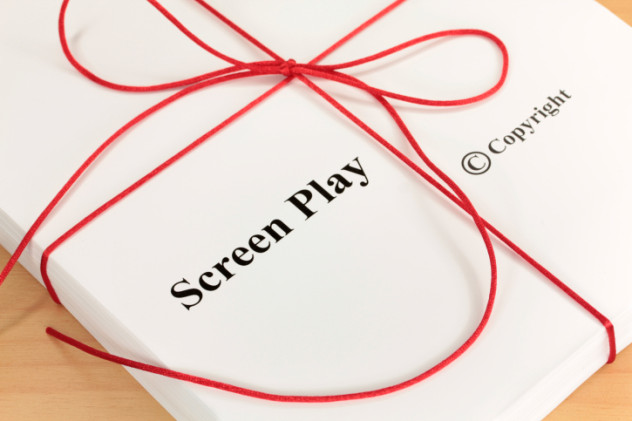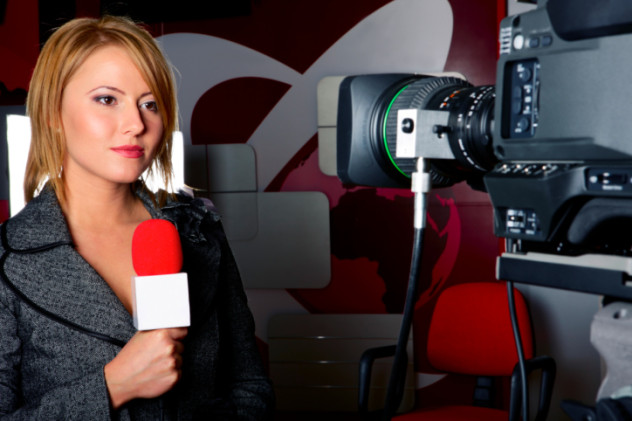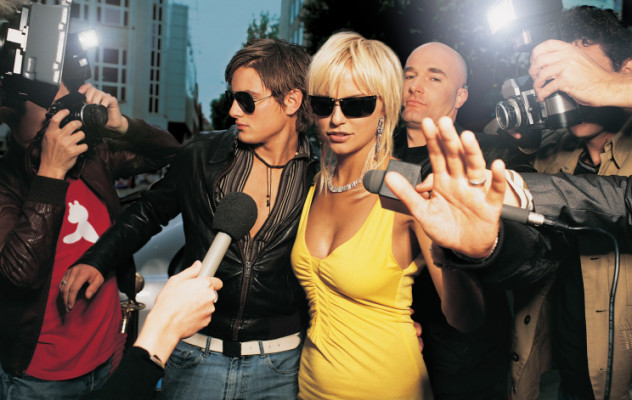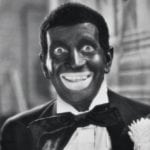 Creepy
Creepy  Creepy
Creepy  Movies and TV
Movies and TV 10 Movies That Get Elite Jobs Right, According to Experts
 Weird Stuff
Weird Stuff 10 Times Real Laws Were Based on Bizarre Hypotheticals
 Animals
Animals 10 Inspiring Tales of Horses Being Human
 Mysteries
Mysteries Top 10 Haunting Facts About the Ghost Ship MV Alta
 History
History 10 Surprising Stories About the Texas Rangers
 Humans
Humans 10 Philosophers Who Were Driven Mad by Their Own Theories
 Miscellaneous
Miscellaneous 10 Video-Game-Worthy Weapons and Armors from History
 Weird Stuff
Weird Stuff 10 Psychics Who Accurately Predicted Wartime Events
 The Arts
The Arts 10 Pieces of Art Inspired by a Broken Heart
 Creepy
Creepy 10 Death Superstitions That Will Give You the Creeps
 Movies and TV
Movies and TV 10 Movies That Get Elite Jobs Right, According to Experts
 Weird Stuff
Weird Stuff 10 Times Real Laws Were Based on Bizarre Hypotheticals
Who's Behind Listverse?

Jamie Frater
Head Editor
Jamie founded Listverse due to an insatiable desire to share fascinating, obscure, and bizarre facts. He has been a guest speaker on numerous national radio and television stations and is a five time published author.
More About Us Animals
Animals 10 Inspiring Tales of Horses Being Human
 Mysteries
Mysteries Top 10 Haunting Facts About the Ghost Ship MV Alta
 History
History 10 Surprising Stories About the Texas Rangers
 Humans
Humans 10 Philosophers Who Were Driven Mad by Their Own Theories
 Miscellaneous
Miscellaneous 10 Video-Game-Worthy Weapons and Armors from History
 Weird Stuff
Weird Stuff 10 Psychics Who Accurately Predicted Wartime Events
 The Arts
The Arts 10 Pieces of Art Inspired by a Broken Heart
10 Depressing Things You Learn Working In Entertainment News
Oh, the glory and the glamour of the entertainment news business. With nothing but fancy premieres to attend, fabulous awards shows to cover, and stunning celebrities to rub elbows with, could there possibly be a downside?
Yes. Like most drudgery-laden jobs, working in entertainment news can be surprisingly boring, baffling, idiotic, and maddening, but someone has to do it. Here are some of the depressing things I learned working in the business.
10No Overtime

Most producers are scheduled to work a fairly average 8–10-hour day. You arrive at 7:00 AM for the story meeting, make your pitches, and help decide the lead story for the day. Then you start collecting material for your individual projects, whether breaking news (“This just in—Taylor Swift wears Depends!”) or evergreen topics (“A Timeline of Kanye West’s Douche-Baggery”). This is what you are scheduled to do on a daily basis, and it usually takes up the entire 8–10 hours of a workday.
But then there are the night and weekend assignments: premieres, junkets, one-on-one interviews, and awards shows. Each of these events requires travel time on Los Angeles freeways—a special kind of horn-blasting, snail’s-paced, face-melting hell on weekdays, but not so bad on weekends. Then, once you’ve arrived at your destination, between checking in with security, setting up in your tiny little space, and covering the event itself, you’ve added at least another four hours to your workday. No, it’s not shoveling horse manure, but you try saying something positive about Dumb and Dumber To to Jim Carrey without laughing in his face. It ain’t easy.
9You Have To Lie For Access To The Stars

There is a lot of money and there are many careers riding on the success of pretty much every film and television show you cover. Publicists and stars don’t want to hear your thoughts about gaping plot holes and overheated acting moments. They see you as being there to promote the film, and if you don’t play nice, guess who doesn’t get access to their next project?
I’ve made peace with this part of the job by finding something positive about even the most horrible film and basing my questions around that. It works quite well, and you’ll generally leave the interview unscathed. Although I once thought I was going to get away from my interview with Bruce Willis and Matthew Perry for the excruciatingly bad The Whole Ten Yards. I asked about their wise-guy chemistry and how both became famous from television and made the transition to movies. It was all smiles and lollipops when the interview was done.
Then, as I was leaving, Bruce called out, “So what did you think about the movie?” I think I mumbled, “BlurtBlop Kay” or something to that effect and rushed out of the room.
8You Really Like The Star As A Person But Can’t Stand Their Work

I understand that the great majority of stars don’t care whether I like their films or not. Most are coolly receptive of interviewers, with few exceptions, because it’s part of the job to be a good soldier and promote the worst crap imaginable as well as career-defining work.
But what happens when you, as a reporter, have to interview someone you think only has limited talent who just starred in a disappointing film? And then when you meet them they’re incredibly charming in person? It sucks.
When I first interviewed Keanu Reeves, I thought of him as one of those handsome guys who can’t act and is best known for the line, “Whoa.” The junket was for the film Constantine. We connected over the comic book series which I am a big fan of (they’ve since made it into a highly underappreciated television show). Keanu was engaging (and, yes, handsome to the point of being beautiful) and happy to finally talk to someone who knew and loved the source material. The character of Constantine is a haunted, chain-smoking, on-the-edge of darkness boozehound. I didn’t have it in my heart to tell him that he was exactly wrong for the role. Or that his performance dragged the rest of the film down. Or that he should never try any accent of any kind, and never, ever Shakespeare. Or anything that would cause him to really act. That being said, I’m still rooting for the guy.
7You Believe You Could Do Better Than Many Wildly Successful Actors And Directors

Working in entertainment news can be overwhelmingly depressing, especially for anyone who has studied filmmaking or music or has ever had aspirations as a creative artist. In my experience, I would say that close to 90 percent of my coworkers were also screenwriters, actors, producers, singers, or in some way connected to the arts (as opposed to the 89 percent of restaurant waitstaff, personal shoppers, and ratcatchers in Los Angeles in some way connected to the arts).
Many have been close to success but, as they say, luck plays a huge part of making it in Hollywood. So does total lack of self-awareness. Imagine being intellectually and artistically comparable to the average film or television director and having to interview a con man like director Brett Ratner, whose (at best) mediocre skills have earned him millions.
6Writing Scripts For An ‘Audience Of Idiots’

Here’s a random sampling of entertainment website headlines:
“Beyonce: Lunch Date…With a Side of Boob”
“Honey Boo Boo’s Weight: Is Mama June to Blame?”
“Red Carpet Whoops! Emma Stone Accidentally Flashes Her Crotch on Red Carpet”
With headlines like these, it’s very clear what those in charge think the public wants. The “dumbing down” of culture is quite purposeful. Although my own 15-year-old daughter and the great majority of her friends are smart and more sophisticated than I was at their age, the current entertainment news culture demands that we write down to the audience, and the audience doesn’t want context. They don’t understand big words and would certainly never look them up with their modern devices.
In a show (admittedly about sexy bodies) we once used the phrase “rapier wit” over video of a humorous scene involving a sword fight (Antonio Banderas as Zorro undressing Catherine Zeta Jones with his blade). The script was changed by an exec from “rapier wit” to “funny,” ruining a visual joke that made perfect sense in context. I’ve heard supervisors actively promoting the use of the Urban Dictionary, which is fine, except I’ve never heard one mention Webster’s.
5The Sleazier The Better

Here are a few stories TMZ (the website with a syndicated television show dedicated to exposing the worst of celebrity) broke:
“Mel Gibson has an Anti-Semitic and Sexist Meltdown During an Arrest for DUI”
“NFL Player Ray Rice Punches Out His Then-Fiancee in a Hotel Elevator”
“Seinfeld’s ‘Kramer’ Goes on a Racist Rant in a Comedy Club”
It’s scandal on steroids, and the public eats it up. TMZ is an easy target here. Harvey Levin, a Los Angeles-based reporter, lawyer, and legal analyst with great contacts, had once focused on local scandal (O.J. made quite a few careers). As host and co-founder of TMZ, he created the new ideal for entertainment newscasts. Not because of their high ethical standards, but because of their willingness to pay very well for information that in the past would never see the light of day.
Harvey and his ilk believe that once someone becomes a celebrity they are public property. They can’t stoop low enough to get the scoop. And they don’t care what anyone thinks as long as the ratings are high and the visits to their website increase. Now E!, Entertainment Tonight, and Access Hollywood (among many others) offer the same sordid content.
4Paparazzi

Paparazzi could easily be No. 1 but, if you’re lucky, you won’t have much direct contact with them. I get that most of us “normal folks” don’t feel sorry for the rich and famous, but believe me you’d be hard-pressed to put up with this group no matter how much money you made.
For instance, I’ve never cared much for Julia Roberts. I acknowledge her talent and beauty, but something about her seems pompous and fake to me. I have no concrete evidence for those feelings, but there they are. And yet, when she was on the red carpet for the Oscars and upset one of the paparazzi by not posing for long enough, he screamed “Julia Roberts, you’re a bitch!” I couldn’t help but feel horrible for her.
3Dealing With ‘Talent’ From Your Own Show

Huge egos run rampant in Hollywood; this is not a surprise. What is surprising is how many of those huge egos are in entertainment newsrooms. Whether you haven’t written a script to suit their style, are running too late to suit their needs setting up a shot, or are just plain annoying them with your needs for the story, reporters of all kinds can cause headaches just by being themselves. While there are some amazing exceptions to this rule, this article is about the many depressing aspects of the job, so here are two examples of what you’d have to deal with.
A) The non-reporter reporter. Years ago, I recall our talent department decided we needed new blood. I remember coming into work one day and noticing something different about the newsroom. It seemed as though the talent department went out of its way to recruit women with large breasts and the most revealing tops for tryouts as field reporters. I was assigned one such subject to show her around the newsroom. I asked her if she was a producer, and she said yes. I then showed her where the computer was to write her script, and she said she didn’t write scripts. Next, I showed her the library program to order footage for the edit bay, and she didn’t seem to know what an edit bay was. When I asked if she had ever supervised an edit with an editor, she said no, so I finally asked her what she had done and she said, “You know, I talk to celebrities. You know.” She now works for one of the major entertainment news shows.
B) The all-about me reporter. I’ve seen reporters who have moved from out of state, leaving their families behind to prey upon the weaker Hollywood players. Some have even ended up married to them. One male reporter got close to a relative of a huge star just to be around that star. You can acquire a sense for these folks by watching their interviews. If they relate anything the celebrity subject says to something in their own lives, that’s the all-about-me reporter. “Oh, I remember my first child, Scarlett Johansson. Like you, I had quite a little rascal on my hands.”
2The Death Of Hero Worship

For every one of your idols that lives up to your impossible expectations, there are 10 who kill any emotional goodwill you have for them. I’ve been ignored, called names, snickered at, brushed off, and have seen many eyes rolled back into heads. Some celebrities are just needlessly nasty. Sometimes you just get someone on a bad day, and sometimes you’re trying to interview someone who just doesn’t care.
Billy Crystal is a favorite comic of mine. I was set to interview him for Monsters, Inc. and had the perfect icebreaker. I was an extra in a movie he directed called Mr. Saturday Night. So I went up to him excitedly and said, “You know, we’ve met before.” And before I went any further he very dryly and curtly said, “I don’t care.” Most comedians are rough interviews. They come from bitter backgrounds, are highly intelligent, and can be mean as hell. One exception is the late, great Robin Williams.
Tommy Lee Jones and Ashley Judd are infamous for being difficult interviews, mostly because they’re smarter than most people and don’t suffer fools easily. And there are plenty of fools in the entertainment news profession. In my own experience, talking to the outwardly beautiful Maura Tierney or Denise Richards is akin to engaging a block of wood. It isn’t because they’re dumb, necessarily, but they may just really not want to be there.
Also, most actors are way shorter than you’d think. Tom Cruise at 170 centimeters (5’7″) is average, and many of the most beautiful women on screen are incredibly frail-looking in person. I was afraid to shake Jennifer Connelly’s hand for fear of hurting her. That being said, a very pregnant Jodie Foster was one of the most luminous women I’ve ever met, and I had never thought of her as very attractive on screen. The point is the big screen (and television) does strange things to our perceptions.
1Publicists

If you think they hate you, that’s because they do. Publicists will not only ignore you, but also actively show their disdain for you daring to approach their client. I’ve seen them push, scream, glare, cut people off, make faces, and just about everything someone can do to be unpleasant in a relatively pleasant situation.
Now, most publicists are very well-behaved and professional. It’s just when you have to deal with the mean ones that stays with you for life. I remember being screamed at before an interview even started because the last interview the celebrity did went on too long. Just before an early morning interview, the actress I was to speak with saw that I hadn’t had my morning coffee (and stayed out late the night before) and asked if I’d like some. I answered that would be great if it wasn’t any bother. Well, her publicist screamed “How DAAARRREEE YOUUUU!” and lit into me for a good three minutes longer than the interview was scheduled. Needless to say, this was for a decidedly C-List actress in a D-minus movie. I stop at Coffee Bean before all interviews now.
Sorry, I won’t name the particularly bad publicists here because, well, they’re known to be an extremely vindictive lot.
Scott C. Sala has over 20 years of experience in creating media content, mostly in entertainment news. He loves pizza and movies and wishes he loved working out more.








